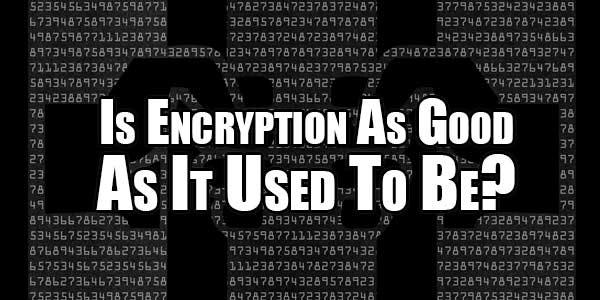
Fans of Hollywood movies will be aware of how strong and unbreakable encryption is. Literally, every spy in every action movie looks at an encrypted file with dread and fear. An army can be fought, bombs diffused, missiles diverted, but opening an encrypted file is impossible, unless the spy has access to its key.
Alas, breaking an encrypted file may be impossible in movies, but reality is a bit murkier. It was long considered that breaking an encrypted file requires hundreds of thousands of years of time and a nearly unimaginable amount of money.
However, it was recently discovered that all these assumptions are nothing but overrated. Thanks to the revelations by Edward Snowden, we came to know that the United States National Security Agency (NSA) has the power to break almost every (perceived) unbreakable encryption used on the internet, mostly by VPN companies, and it used it to break nearly Trillions of internet connections.
So how did they manage to do that? This is the question we’ll be answering below.
Table of Contents
Weak Links In Modern Encryption?
Creating the perfect encrypted system requires you to create an algorithm which is 100% perfect. A failure in the algorithm or a glitch in the software can sink the ship. It requires plenty of education, time and patience to create the most perfect code for encryption purposes.
Even if you’ve managed to create the most perfect encryption code, it is still possible to crack it by employing hundreds of computers and making them work in parallel. Even video cards can be used alongside CPUs to break an encrypted code. It’s not difficult for a technology trained individual to chew through millions of triangles to also try millions of passwords.
Certifications regarding encryption can also be faked in many cases. Say you go to StevieMail.com, an encrypted email connection. And while you click through to scrutinize the certificate, you discover that it was issued by the certificate authority of StevieMail.com and it’s all legit.
But what if this information is wrong and StevieMail.com has actually employed the certificate of another company? And that company may have given it to an eavesdropper who may perform man-in-the-middle attack anytime he wants?

Backdoors Aplenty!
One of the most dangerous things we’ve discovered lately is that modern encryption is filled with several backdoors, ready to be exploited by agencies and organizations.
Whistle-blower Edward Snowden revealed in his leaks that the RSA, a company which creates encryption codes for companies, received a $10 million bribe from the NSA in order to implement a flawed cryptographic algorithm Dual_EC_DRGB in its bSafe Security tool as a default protocol to keep encryption weak.
So there’s no doubt that the NSA will make use of these undetectable and weakened “trapdoors” in millions of cryptographic keys to decrypt encrypted traffic over the internet.
Premium VPN Users Should Fret Not!
Despite all the vulnerabilities discovered in modern encryption, premium VPN users should still not worry. All you need to do is to make sure that your VPN service uses 1024 bit or above rates of encryption.
While it is still possible to break the above encryption codes, that however requires a whole lot of time and millions of dollars worth of equipment. Researchers recently assembled to demonstrate how difficult it is to break a 1024-bit encryption.
It took researchers 2 months and as many as 3,000 CPUs to break one of the 1024-bit encryption keys. Even that was only possible when the researchers created a weak 1024-bit Diffie-Hellman trapdoor function, i.e. randomly selecting large prime numbers from a predefined group.
“Current estimates for 1024-bit discrete log in general suggest that such computations are likely within range for an adversary who can afford hundreds of millions of dollars of special-purpose hardware,” the researchers wrote in their paper.
It is highly improbable for someone to invest this much amount of money and time, only to be able to monitor your online communications.
Only premium VPN companies such as PureVPN and Ivacy provide their users with 1024 bit encryption to secure their online communications. It is, therefore, safe to assume that if you have subscribed to any of the above VPN companies, then your online communications are safe and hidden from the eyes of governmental agencies and hackers.


















Good article! you have good and nice information Thanks for sharing such a amazing article with us
Welcome here and thanks for reading our article and sharing your view.